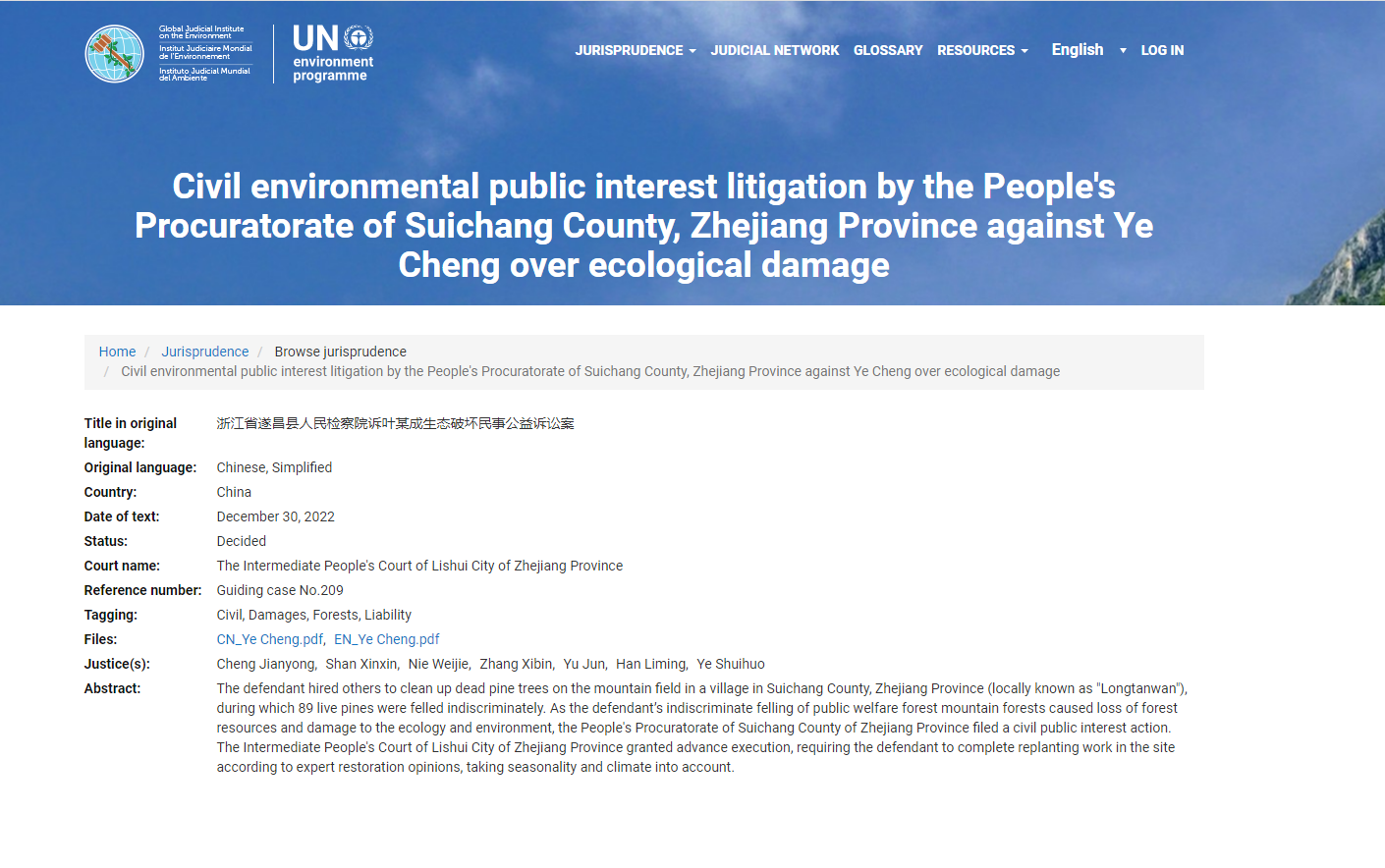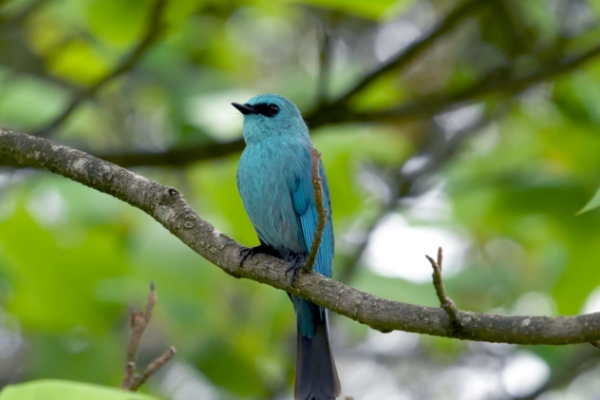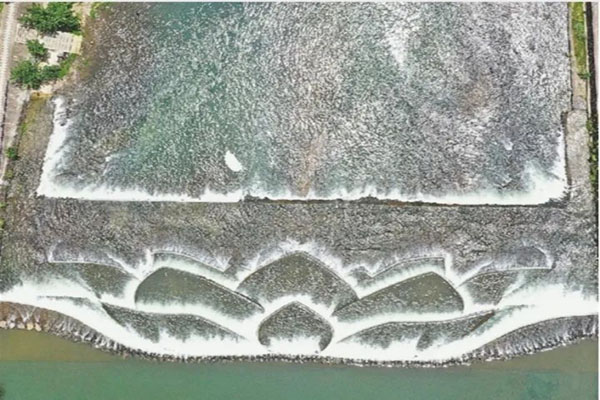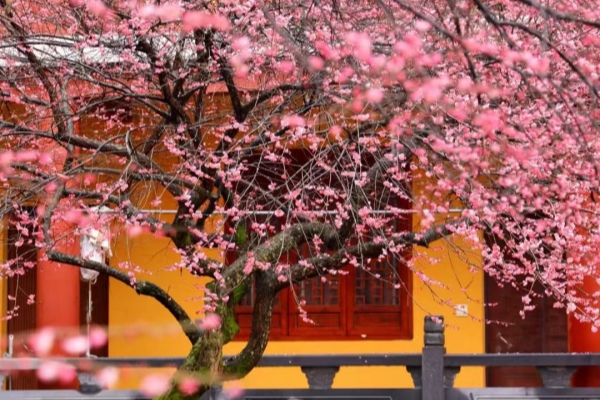Lishui's environmental case featured in glossary of UNEP
The litigation by the People's Procuratorate of Suicang against Ye Cheng over ecological damage has been listed in the United Nation Environment Programme's glossary of jurisprudence.

The case, along with its abstract and digital files, is shown on the webpage of UNEP glossary. [Photo for chinadaily.com]
The case, chosen as part of the fourth group of 45 Chinese environmental resource judicial cases, emphasizes China's growing sway in international ecological laws.
Under a memorandum of understanding with the UN Environment Programme, the Supreme People's Court aims to share its and the lower courts' environmental judicial practices globally. A dedicated section has been set on the Global Judicial Portal, becoming a vital platform for international understanding and recognition of China's environmental judicial achievements.
The case involves the illegal felling of live pine trees by the crew hired by the defendant, leading to the destruction of a forest designated for protection and damage to the public interest.
The Intermediate People’s Court of Lishui granted execution after hearing the case, directing the defendant to replant trees as part of ecological restoration efforts guided by experts. The court also set several benchmarks for the defendant’s restoration work.
The Global Judicial Portal, as an innovative and active project by UNEP and other international organizations, is a platform that promotes and provides greater access to judges and the global environmental law community with related information and jurisprudence.

 Lishui establishes intelligent biodiversity monitoring system
Lishui establishes intelligent biodiversity monitoring system New fungus species discovered in Qingyuan
New fungus species discovered in Qingyuan Lishui transforms weirs to aid fish migration
Lishui transforms weirs to aid fish migration